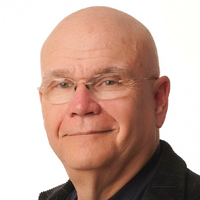Here is an intriguing formula for being a successful small businessman. Drink a lot in college.
Ben Christiansen is David to retail Goliaths, and with no advertising and only 660 square feet of storefront space, his Waterford Wine Company on Brady Street has survived the bad economic times just fine. Waterford somehow stocks 900 wines and another 200 spirits in its compact shop, successfully competing with Pick 'n Save, Whole Foods, Sendik's and much larger liquor stores.
To what does he attribute this? "Drinking got me here," he says with a smile. "I partied hard in college, although I drank more beer and hard alcohol back then."
We don't want to leave the wrong impression. The Iowa native is not a bumbling booze hound, and knowing him today, it is difficult to picture Christiansen as a bleary-eyed underclassman. He has a master's degree in educational administration from UW-Madison, and his approach to selling alcohol is engagingly informational.
That is a large part of Waterford Wine's success. Christiansen explains wines with a deep base of knowledge and a flair for weaving history and geography into his narratives. He does this with frequent email blasts, in-store tastings and advice to customers.
The owner writes in a literate and entertaining style, and his smart presentations at tastings are infectiously passionate.
Christiansen employs a sales staff of six part timers and one full time associate, and he conducts regular private tastings to keep the group up to speed on the store's stock. "We pride ourselves on service. My employes are excited to be here," he says.
"I want a customer to be able to come in here and say, 'I will be frying my first green tomatoes of the season in a little bit of olive oil, and I am topping them with burrata cheese. What's my wine?'"
Christiansen modeled Waterford Wine on a similar shop in his hometown of Des Moines. "I love what the owner did there, talking about wine, getting to know his customers and helping them pick what they drink.
"When you went there, you learned about the countries and the people who made the wine, and you got your buzz on at the same time. I was inspired that someone has sold wine in this way."
Christiansen was a stay-at-home dad at the time his idea for Waterford Wine began percolating. He bought two books on how to write a business plan, obtained a bank loan and several partners, and opened the store in 2005.
The shop's name reflects the fact that all of the partners lived in the Waterford condos on the East Side. Christiansen is now the sole owner of the business.
One or two more extensive tastings are offered every week. Most cost $20 and include what amounts to a pop lecture from Christiansen.
Recent tastings have ranged from sparkling wines to Rieslings. Tannin is the theme of a tasting at 7 p.m. Thursday. Reservations are required for the paid tastings.
Individual service and a small store may lead people to believe Waterford doesn't compete on price with its larger rivals. Christiansen says that isn't true.
"About 25% of our wine inventory is priced at $9.99 a bottle or less," he adds. "You can buy a bottle of Sangiovese for $6.99 or $449."
Cabernets are Waterford's top selling wines. Pinot Noirs, especially from Oregon, are also big.
The shop carries 60 different champagnes, including some from the "small growers" niche. Those are artisanal bubblies made by the farmers who actually grow the grapes.
What's hot in the wine industry? "Lower alcohol, higher acid wines. They tend to be more flavorful, more drinkable, and they pair better with food," Christiansen says.
"They have a more dramatic bouquet, adding to the sensual experience, and because they are low alcohol, they don't hit you as hard."
Those Oregon Pinot Noirs, as well as some Californian, and white and red Burgundies fall into the category.
What's not hot? Australian wines. They were huge sellers when Christiansen opened his shop, but the bottom fell out of the market for them, he says.
He blames an overemphasis on low price in the Aussie wine industry, igniting a race to the bottom in quality. Even sales of higher end wines have been affected, as the public has generally gone sour on vintners from Down Under.
Christiansen says craft spirits is the fastest rising segment of the alcoholic beverage business. Just as happened in beer, feisty new entrepreneurs, such as Milwaukee's Great Lakes Distillery and Balcones Distillery in Waco, Texas, are making small batches of artisanal products.
Waterford sells Balcones' Baby Blue, the only whisky in the world made from blue corn. The craft movement in spirits is being fueled by young drinkers who are willing to be adventurous, according to Christensen. He expects the segment to become a larger percentage of his business.
Damien has been around so long, he was at Summerfest the night George Carlin was arrested for speaking the seven dirty words you can't say on TV. He was also at the Uptown Theatre the night Bruce Springsteen's first Milwaukee concert was interrupted for three hours by a bomb scare. Damien was reviewing the concert for the Milwaukee Journal. He wrote for the Journal and Journal Sentinel for 37 years, the last 29 as theater critic.
During those years, Damien served two terms on the board of the American Theatre Critics Association, a term on the board of the association's foundation, and he studied the Latinization of American culture in a University of Southern California fellowship program. Damien also hosted his own arts radio program, "Milwaukee Presents with Damien Jaques," on WHAD for eight years.
Travel, books and, not surprisingly, theater top the list of Damien's interests. A news junkie, he is particularly plugged into politics and international affairs, but he also closely follows the Brewers, Packers and Marquette baskeball. Damien lives downtown, within easy walking distance of most of the theaters he attends.







